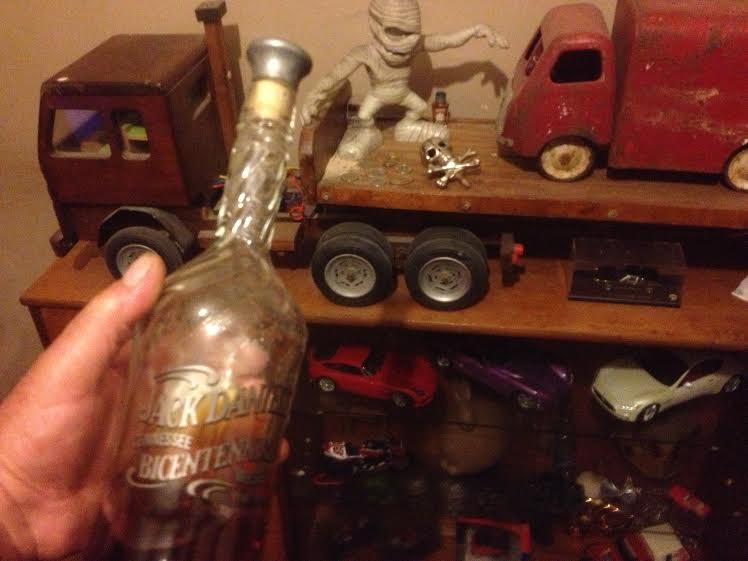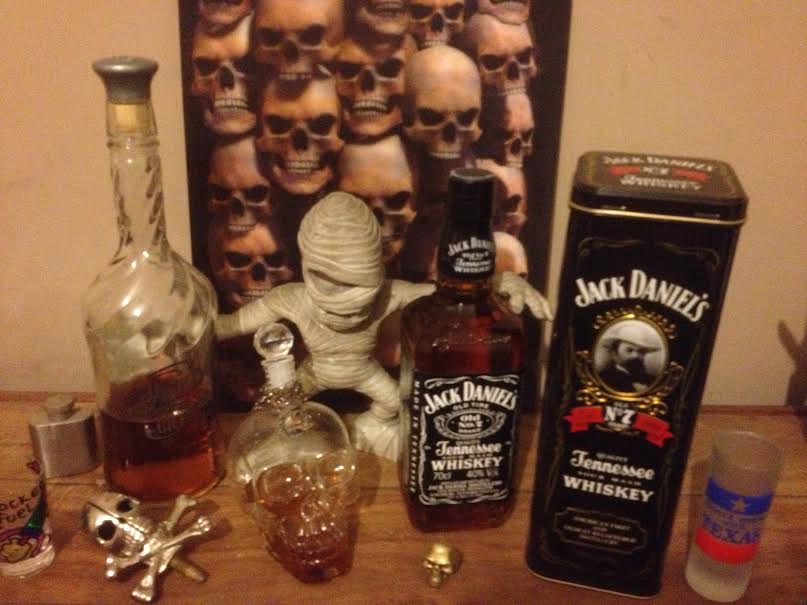| Author | Message | ||
Fb1 |
 | ||
Aesquire |
As a bit of trivia, the Music the Star Spangled Banner was set to is "To Anachreon In Heaven" a fine drinking song. http://en.wikipedia.org/wiki/To_Anacreon_in_Heaven The National Anthem has a long history of being a pain to sing, has driven countless cymbal players mad, ( it has a syncopated cymbal beat ) and has unmasked many talentless pop singers. It also has some hard core lyrics almost never sung. I saw a singer at a minor league baseball game just keep going with the second verse once and it freaked a lot of people out. O say can you see by the dawn's early light, What so proudly we hailed at the twilight's last gleaming, Whose broad stripes and bright stars through the perilous fight, O'er the ramparts we watched, were so gallantly streaming? And the rockets' red glare, the bombs bursting in air, Gave proof through the night that our flag was still there; O say does that star-spangled banner yet wave, O'er the land of the free and the home of the brave? On the shore dimly seen through the mists of the deep, Where the foe's haughty host in dread silence reposes, What is that which the breeze, o'er the towering steep, As it fitfully blows, half conceals, half discloses? Now it catches the gleam of the morning's first beam, In full glory reflected now shines in the stream: 'Tis the star-spangled banner, O! long may it wave O'er the land of the free and the home of the brave. And where is that band who so vauntingly swore That the havoc of war and the battle's confusion, A home and a country, should leave us no more? Their blood has washed out their foul footsteps' pollution. No refuge could save the hireling and slave From the terror of flight, or the gloom of the grave: And the star-spangled banner in triumph doth wave, O'er the land of the free and the home of the brave. O thus be it ever, when freemen shall stand Between their loved home and the war's desolation. Blest with vict'ry and peace, may the Heav'n rescued land Praise the Power that hath made and preserved us a nation! Then conquer we must, when our cause it is just, And this be our motto: "In God is our trust." And the star-spangled banner in triumph shall wave O'er the land of the free and the home of the brave! There's also a post civil war verse I've only EVER heard a Drill Sgt. sing. When our land is illumined with liberty's smile, If a foe from within strikes a blow at her glory, Down, down with the traitor that tries to defile The flag of the stars, and the page of her story! By the millions unchained, Who their birthright have gained We will keep her bright blazon forever unstained; And the star-spangled banner in triumph shall wave, While the land of the free is the home of the brave. God Bless our land in it's time of trial. | ||
Strokizator |
What !?! All these years I thought it was “José can you see?”. Well, that’s what I get for living in California. A few years ago I was in Baltimore and asked a local what Ft. McHenry was like. She'd never been there, had no idea of it's significance and barely even knew it existed. You guys on the east coast need to get your kids out to see all this stuff. | ||
Rocket_in_uk |
Jack's been making whiskey longer hasn't he , lol   Rocket in England | ||
Sifo |
Jack's been making whiskey longer hasn't he , lol No. | ||
Ferris_von_bueller |
Rocket is still bitter the British gave up not once but twice | ||
Fb1 |
Madison Rising's original video version of the Star-Spangled Banner, almost six million views: http://youtu.be/c8C7i9kdEf8  | ||
Fb1 |
God Bless our land in it's time of trial. Amen, brother. | ||
Aesquire |
http://www.thewhiskyexchange.com/P-13786.aspx The Bicentennial Jack Daniel's bottle was issued to celebrate the State of Tennessee's Bicentennial, not the whiskey, which dates back ( in theory ) to the 1850's. Whiskey, of course was the invention of the saviors of civilization, The Irish. Who then taught the secrets of making the Water Of Life to the Scots, and the rest of the world. There is some dispute as to the magnitude of how important the Irish were to the Renaissance, but not that they were in part instrumental. http://en.wikipedia.org/wiki/How_the_Irish_Saved_C ivilization Free for download. ( I bought my paper copy years ago. ) http://ebook.stepor.com/book/how-the-irish-saved-c ivilization-hinges-of-history-8719-pdf.html | ||
Rocket_in_uk |
The Bicentennial Jack Daniel's bottle was issued to celebrate the State of Tennessee's Bicentennial I'm glad the connection, no matter it being tenuous, was not lost. Thank you Patrick. Was a great opportunity to share a wonderful and rare bottle with my American cousins and friends. I especially held it in front of the odd trinket, the obvious one another tenuous connection to the Star Spangled banner, but so far no one spotted it  Ferris v, Sif, let it go man. This is NOT the Ukraine topic. Have a Jack on me....   Rocket in England |